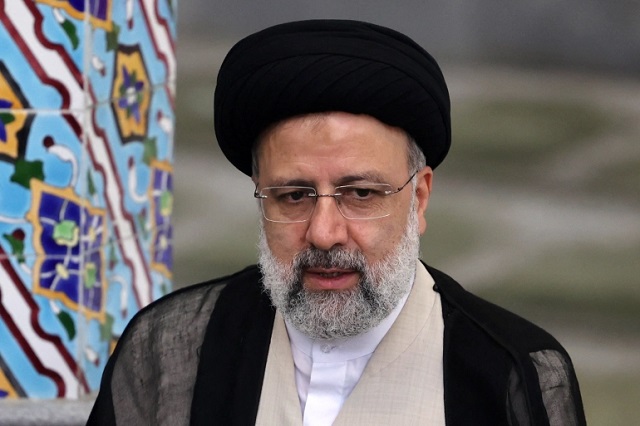
Tehran, Iran | Xinhua | Iranian President Ebrahim Raisi on Wednesday stressed that Washington’s language of coercion doesn’t work on Iran, and Tehran will not back down from its “rightful and logical positions,” according to the Iranian presidency’s website.
The U.S. “maximum pressure” campaign has “failed miserably,” Raisi said at a cabinet meeting, advising the Americans to “see the facts and learn from the past instead of repeating the failed experience of maximum pressure on the Iranian nation.”
“It is not possible to speak to the Iranian people with the language of coercion. It is strange that they still want to speak with the same literature that will definitely not bring them any results,” he added.
Regarding the talks on the revival of the 2015 nuclear deal, formally known as the Joint Comprehensive Plan of Action (JCPOA), Raisi said the Americans said that Iran must return to the accord, but the fact is that Iran has never withdrawn from the JCPOA and it was the United States who violated the deal.
In the nuclear talks, Iran has always acted rationally and put forward its logical demands, he said, stressing that the Iranian negotiating team has not presented any demand outside the existing frameworks.
Turning to the U.S. President Joe Biden’s Middle East visit, Raisi stressed that the Islamic republic is closely monitoring all regional developments and has recurrently warned that any action against Iran’s territorial integrity will receive a decisive response.
Iran signed the JCPOA with world powers in July 2015, agreeing to curb its nuclear program in return for the removal of sanctions on the country. However, former U.S. President Donald Trump pulled Washington out of the agreement in May 2018 and reimposed unilateral sanctions on Iran, prompting the latter to drop some of its commitments under the pact.
The talks on the revival of the 2015 nuclear deal began in April 2021 in Vienna but were suspended in March this year because of political differences between Tehran and Washington.
After a three-month pause, the talks resumed recently in the Qatari capital of Doha, but failed to result in any agreement to settle the remaining differences.
Biden began his four-day Middle East tour on Wednesday.
 The Independent Uganda: You get the Truth we Pay the Price
The Independent Uganda: You get the Truth we Pay the Price



